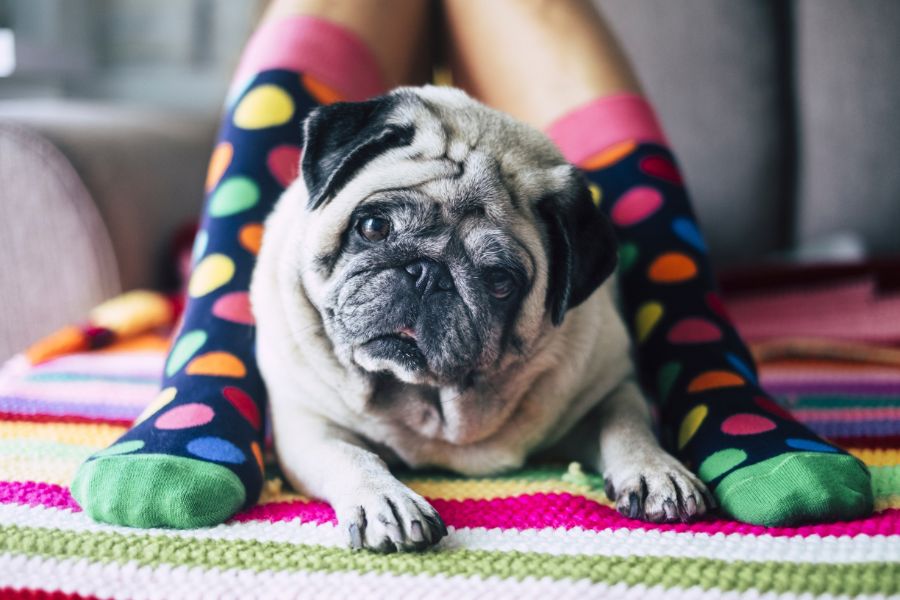Pet Separation Anxiety in an Ever-Changing World

Chances are, your pet has relished in the recent stay-at-home order. Of course, they didn’t realize that your new schedule wasn’t the result of a terrifying contagious disease, they were just happy that you were around.
Now that life is readjusting to a new normal, you might be preparing to head back to work. Pet separation anxiety can quickly stem from abrupt changes, and we’re here to help.
What is Pet Separation Anxiety?
Pet separation anxiety is caused by a profound fear of being parted from their favorite human. If you think about it, you’ve possibly spent more time than ever before in your pet’s company. It’s natural that they’ll be a little confused when you start to leave without them, and not return for some time.
How Do I Help My Pet?
To get your pet accustomed to the idea, it’s important to start out slow. Start by leaving them home alone for short periods of time. If they don’t appear distressed by your absence, and there’s no damage in the house, you can try to extend your time away from home.
When you do return, however, you may be greeted by an overly enthusiastic pet. Try to remain as neutral as possible. If you overreact to them, you may inadvertently reinforce possible symptoms of pet separation anxiety.
What to Look For
Some pet owners know that their pet is triggered by time alone, whereas many people may just be learning of their pet’s suffering. Symptoms can vary in intensity or duration, and can include any (or all) of the following:
- Blocking exits
- Intense clinginess
- Increased vocalizations, such as whining, whimpering, crying, barking or meowing
- Pacing or restless
- Inappetance
- Urination or defecation in the house or outside the litter box
- Eating poop
- Destructive chewing, clawing, digging
- Escape attempts
- Exuberant greeting when you get home
It’s important to know that pet separation anxiety rarely improves on it’s on own. Close owner involvement, patience and compassion can reduce triggers. Left alone, anxiety can develop into full fledged phobias.
If you suspect your pet needs a little extra help, we can help with behavioral support or prescription medication.
Moving Ahead
While pet separation anxiety can be part of a normal process, if the effects take over a pet’s quality of life it’s worth it to rule out serious health problems with similar symptoms. If your pet gets the green light, you can begin to address their behavioral concerns.
Defeating Pet Separation Anxiety
In this ever-changing world, it’s hard for pets to catch up sometimes. By giving them the tools – at the right time – you can help them meet you halfway.
If you have additional questions or concerns about pet separation anxiety in a post COVID-19 world, we encourage you to call us at Volunteer Veterinary Hospital.

